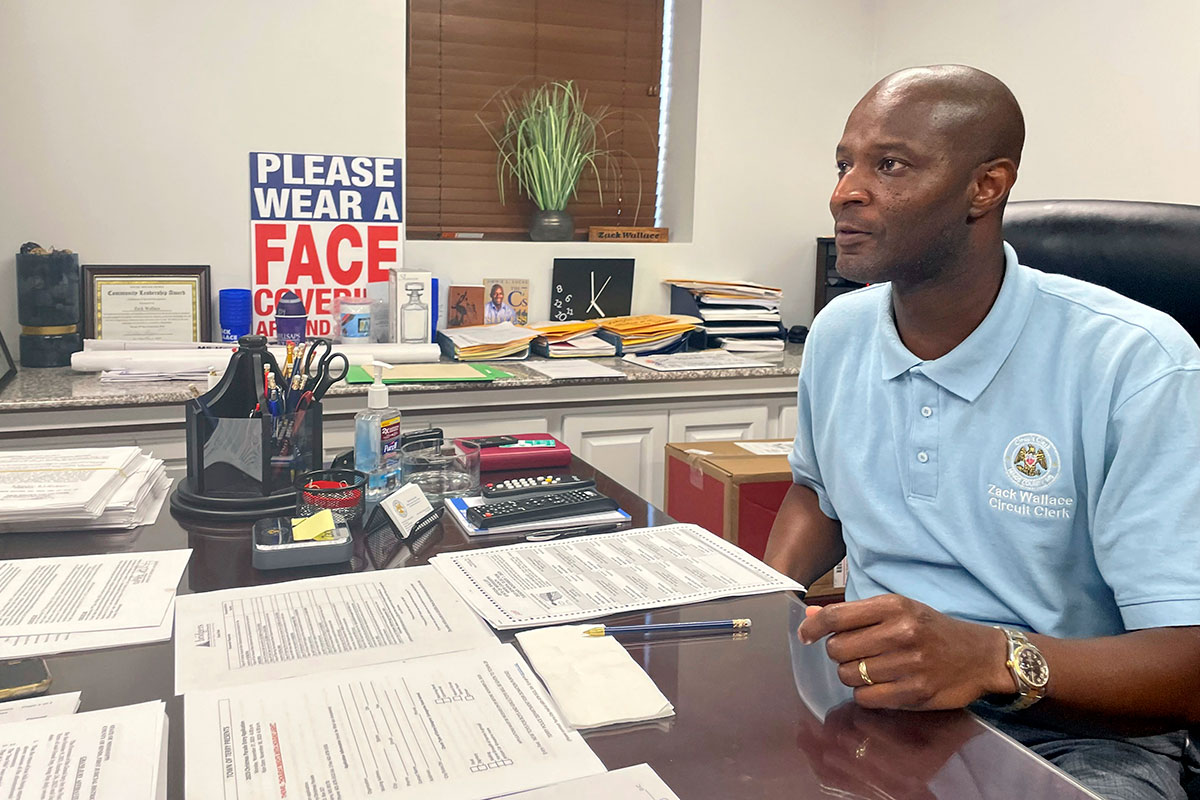Another election year is over, but our work interrogating Mississippi’s election systems certainly is not.
We started getting the first reports of ballot shortages from voters in Mississippi’s largest county before noon on Election Day. By that evening, it was national news that at least nine precincts had run out of ballots—causing voters to wait for hours to cast a vote in some cases or else leave without making their voices heard.
Local officials have attributed the chaos to a number of breakdowns in the system.
“There were some mistakes, a lot of small fires that we needed to put out right away,” Hinds County Circuit Clerk Zack Wallace told WLBT, citing running out of print toner as one of the complicating factors in procuring enough ballots. Local election officials also cited higher-than-expected turnout—even though turnout was down from the last statewide election cycle in 2019.
The ballot shortages spawned a raft of false conspiracy theories, including claims that Republican Gov. Tate Reeves had orchestrated the shortages to prevent Democratic opponent Brandon Presley from defeating him. (There is no evidence that Reeves or any other state officials had any involvement; procuring ballots is handled by local officials, and there were not enough voters in the nine affected precincts to swing the election).
This is far from the first time this has happened.
During the August primaries, a precinct in Madison County ran out of Republican ballots while a precinct in Leflore County ran out of Democratic ballots, WAPT reported. When Hinds County faced ballot shortages in 2014, local election officials said they did not print the number of ballots required under state law because they were trying to save money, WLBT reported at the time. They also cited “unexpected higher turnout than normal”—an explanation that’s well-worn at this point.
This just cannot be how elections go if we are to build and grow democracy in this state; Mississippi is already legally one of the hardest and most restrictive states to cast a ballot in even before taking system failures into account.
That’s why, for several years now, we’ve been busy interrogating Mississippi’s election systems, including the statewide database that connects to the Mississippi secretary of state’s online polling place locator. In theory, voters can use the tool to find their polling place on Election Day. In practice, though, the tool often spits out incorrect information.
We identified the database as the source of that problem in a report on our latest investigation ahead of Election Day. Our report found that at least 92 voting precincts in the database had incorrect, outdated or missing information on polling-place locations. We published a list of these precincts along with correct polling-place information, following up on work we did for the 2020 general election, the 2022 primaries, the 2022 general election and the 2023 primaries.
Sure enough, we heard from voters on Election Day who said the polling-place locator sent them to the wrong location in some of the very precincts where we identified inaccuracies. Secretary of State Michael Watson revealed on Twitter that even his own mother-in-law was not able to get accurate polling place information from the polling-place locator because of inaccuracies in the system.
But his office has repeatedly told us that it is the duty of county election officials, not state election officials, to maintain accurate information in the database, known as the Statewide Election Management System. Watson says the secretary of state does not have the power to enforce accurate reporting in SEMS nor to ensure counties procure enough ballots for their voters.
So where else are all the other “small fires” in our election system, and what are the solutions? How can we make voting easier and give voters reasons to trust that their voices matter and their votes will be counted? That’s what we intend to help uncover as we continue to interrogate Mississippi’s election systems, from top to bottom.
The news media can talk about polls and candidates and political intrigue year after year, but if we aren’t examining the roadblocks that keep people from casting a ballot in the first place, we aren’t doing our job as journalists.
Please continue supporting our democracy-building work by donating to our nonprofit. With our current NewsMatch campaign, any gift you give now will be double-matched.
This MFP Voices essay does not necessarily represent the views of the Mississippi Journalism and Education Group, the Mississippi Free Press, its staff or board members. To submit an opinion for the MFP Voices section, send up to 1,200 words and sources fact-checking the included information to azia@mississippifreepress.org. We welcome a wide variety of viewpoints.






